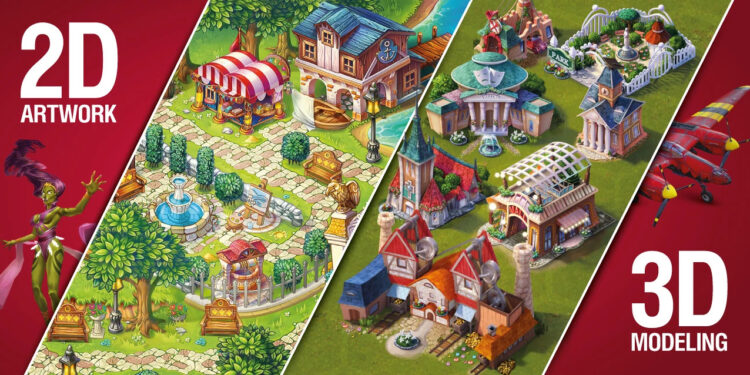The main reason for outsourcing game development to some tasks or a complete game is the ability to build skills quickly. For example, if a company urgently needs to scale up and connect professionals to new projects who can promptly and efficiently complete tasks. Then, instead of looking for personnel one by one, training them, appointing managers, signing documents with each, getting used to it, and so on, you can transfer specific tasks to an outsourcing studio.
The second equally important reason is the need to create more content. Cost savings remained in third place. If you plan to outsource a whole project, you need to break it down into components and learn about each from the outsourcing companies. Understanding the company’s specific challenges will let you know who best to work with.
Sticking to a busy schedule can lead to crashes, burnout, and costly mistakes. Having transferred the project to outsourcing, the client knows that the company will regularly keep informed of the process, fixing the results daily.
Mutual Understanding is the Key to Game Development
Direct hiring does not always bring a positive result, especially if the task had to be closed “yesterday.” The outsourcing studio already knows the strengths and weaknesses of its employees and distributes projects based on these points. Since employees have known each other for more than one day, there is mutual communication. The absence of organizational and communication problems is necessary for the project’s timely completion and practical cooperation.
Game Outsourcing Reduces Risks
If the development company is unsure about the project but wants to test the idea, it is better to outsource it. In this case, hiring your team is too risky. Instead, the outsourcing studio will provide a prototype in time for the client to test the idea and mechanism.
Life is unpredictable and, unfortunately, in reality, too. Often, today’s good partner becomes tomorrow’s enemy. Therefore, if a significant collaboration is expected, proofreading contracts, adjustments, discussions, and controversial points are tedious, sad, but inevitable procedures. But, on the other hand, if very large-scale cooperation is planned, this process can last until the blessing of the Lord descends on both partners and all issues are closed.
Cooperation
The good news is that development companies can now outsource every game project. There has never been a better time to collaborate remotely with partners. In the beginning, teams feel they have done even more work than before. For the first couple of weeks, outsourcers will request some materials. This is fine. As soon as all processes are debugged, the development will go at an ultra-fast pace.
Since the first video games, developers have been striving to create attractive, eye-catching visuals and detail. Therefore, one of the most popular and responsible services is art outsource. Combining early ideas with new ones, the artist comes to something unreal, modernizing and improving ideas. The arts are selected according to the styles or themes of the games:
- fantasy;
- historical;
- space;
- mythological;
- post-apocalyptic;
- cyberpunk, etc.
Game design is perhaps one of the most exciting areas of media design. Character design, rendering of locations, props, buttons, and game icons, complete immersion in the era and history of the game – all these provide excellent opportunities for the designer and his imagination.
3 Steps for Successfully Delegating Tasks
If you still decide to outsource one or several game parts, then for a good result, you still need to participate in the process at all stages. Therefore, the success of your project will not depend only on the outsourcing companies you hired, but you, as the primary link, must constantly be in touch and follow the process. This is the first step to success – Cooperation.
The next step, which is also mandatory at the initial stages, is to provide the most detailed information. The more voluminous the materials are, the easier it will be for designers and developers to bring characters from concept into in-game 3D models or concept art for promotion.
The third and most essential step is communication. This important character and skill will help all participants and video game developers be active. Initially, this discusses concepts, genres, and the desired result. Next, the groups exchange information about their preferences, budget, or schedules for the game project. In subsequent rallies, the participation of outsourcing companies will also not be excluded since they are all the same, and these people are also part of the common cause. Finally, when the work is done, constructive criticism, corrections, or acceptance of the work are always appropriate.
If the developer’s team cooperates with an outsourcing company, all teams must understand that such interaction will bring new experience, knowledge, and development prospects. At first, entrusting your product to a third party is difficult. It takes time. But in the end, when you see the results, you can understand that the choice was made correctly.












Your article helped me a lot, is there any more related content? Thanks!